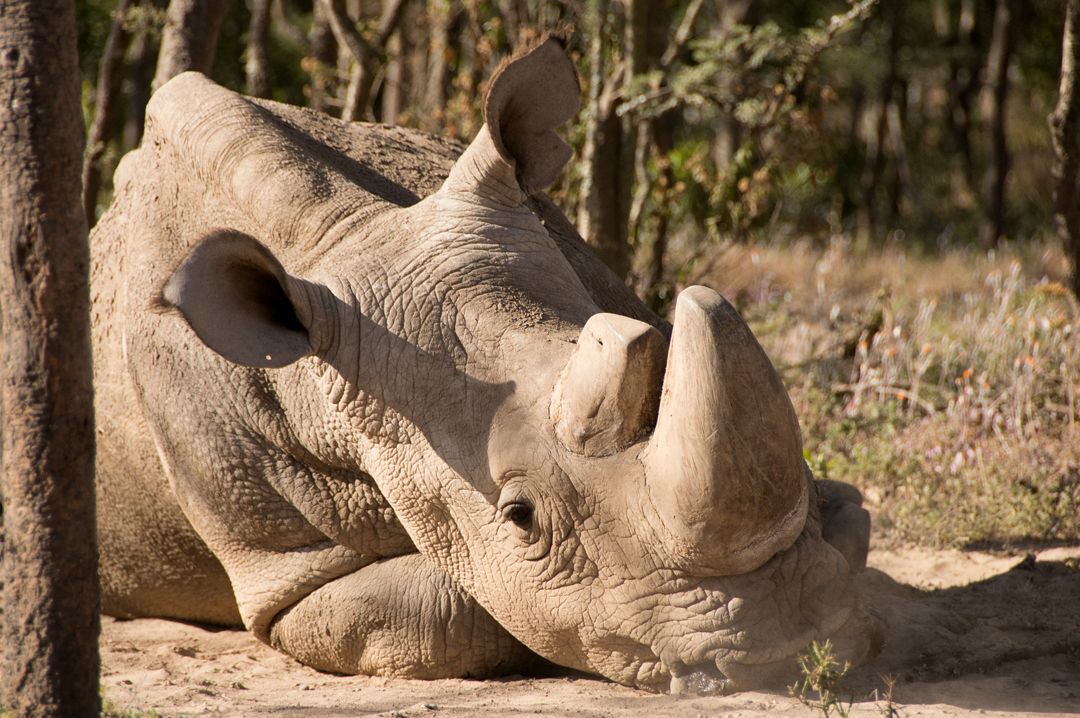Green - Last Male Northern White Rhino Dies
Too old to breed and unable to stand because of a debilitative disease, veterinarians reluctantly euthanized the world's last remaining male Northern White Rhino. Only two females from the subspecies are left.
The 45-year old Northern White Rhino named "Sudan" was "being treated for age-related complications that led to degenerative changes in muscles and bones combined with extensive skin wounds" at the Ol Pejeta Conservancy in central Kenya. His condition deteriorated too badly, and on Monday the animal doctors made the decision.

"He was a great ambassador for his species and will be remembered for the work he did to raise awareness globally of the plight facing not only Rhinos, but also the many thousands of other species facing extinction as a result of unsustainable human activity," said Ol Pejeta CEO Richard Vigne. "One day, his demise will hopefully be seen as a seminal moment for conservationists worldwide."
The only two females of the subspecies - Sudan's daughter Najin, and granddaughter Fatu - both live under 24-hour armed guard at Ol Peteja. That Sudan lived for so long was a result of the security at the wildlife park, because Rhinos in general are under enormous pressure from poachers. Horns are sawn or hacked from the heads of dead or dying animals and sold abroad - mostly to China, where they are used in worthless "traditional" medicine, or to Yemen where the horns are fashioned into dagger handles.
Although there was talk of using in-vitro fertilization to impregnate Najin and Fatu, or using other Rhinos as surrogate moms, the sub-species' fate was probably written during the 1970s and 1980s. A poaching crisis them wiped out Northern White Rhinos in Uganda, the Central African Republic, Sudan, and Chad. The rest, in the Democratic Republic of Congo, fell to war there in the 1990s and 2000s. Sudan and other Northern White Rhino escaped poaching because they were moved to the Dvur Kralove Zoo in what was then Communist Czechoslovakia in the 1970s, and then back to Africa in 2009.
"Sudan's death is one we should wish for all rhinos - a natural death and not one resulting from a bloody mess of a face where his horn once stood so proudly," said the charity Helping Rhinos.








 Create PDF
Create PDF Print
Print Email to friend
Email to friend